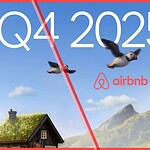Booking.com to Automate Tax Withholding in Parts of Canada
- Starting October 1, 2025, Booking.com will begin automatically calculating, withholding, and remitting short-term rental (STR) taxes in 7 provinces of Canada.
- Covered taxes may include – British Columbia: PST, MRDT, + 2.5% Major Event Tax in Vancouver, Alberta: 4% Tourism Levy, Quebec: QLT, QST, Ontario (Ottawa) & other provinces: MAT or local equivalents.
- This applies only to properties using Payments by Booking.com with payouts via Virtual Credit Card (VCC).
- In Ottawa, automation is limited to Homes, B&Bs, Cottages, and dedicated STRs, not hotels or motels.
- Taxes may apply to just the nightly rate or to both the rate and property fees, depending on the region.
- Some longer stays are exempt, like 27+ nights in British Columbia, and 31+ days in Quebec and Manitoba. Local exemption rules still apply and vary by region.
- For unpaid/no-show bookings or if the host doesn’t use VCCs, Booking.com won’t remit taxes, and hosts stay responsible for full compliance.
Snigdha’s views
- Before October 2025, Canadian STR hosts had full responsibility for tax compliance, collecting, reporting, and remitting local taxes manually, regardless of payment method.
- Now, Booking.com’s move to automate tax withholding and remittance in select provinces signals a major shift: platforms are starting to share the enforcement burden.
- This lightens the load for some managers but doesn’t eliminate risk. The scope is still narrow, only for VCC-enabled listings and only in certain provinces and property types.
- Managers juggling multiple platforms or operating across regions will still need to track where automation stops and manual compliance begins.
- This isn’t a Canada-only development.
- Booking.com has rolled out similar automation in U.S. states like Arkansas, Georgia, and Indiana, echoing what Airbnb has long done in many global markets.
- Property managers should see this as part of a wider trend. As governments push harder on STR tax transparency, platforms will likely continue stepping in to help hosts stay compliant, yes, but also to safeguard their own operations.
HomeToGo Puts B2B Front and Center After Interhome Deal
- HomeToGo has completed its acquisition of Interhome and is now officially positioning itself as a B2B-first vacation rental group with a dual focus: helping travelers book better stays and helping property managers grow. The company says HomeToGo_PRO, its software and service arm, is now its largest business unit.
- The new brand vision, “Unlocking Better Stays,” reflects a broader strategy shift: combining guest-facing services with host-facing infrastructure. Interhome brings more direct guest touchpoints, giving HomeToGo a bigger role across the full guest journey.
- To support the strategy, Stephanie Frenzel has been named Chief People Officer and joins the Group Management Board.
- Dominik Schwarz returns as Managing Director of the HomeToGo Marketplace, focusing on profitability and operational efficiency.
- HomeToGo continues to operate a B2C booking marketplace while doubling down on its SaaS and distribution tools for professional managers.
- The shift mirrors past Rental Scale-Up coverage, highlighting how HomeToGo generates a growing share of revenue from B2B services.
Snigdha’s views
- Europe’s leading group HomeToGo has officially completed its transition into a B2B-first company, following the closure of its Interhome acquisition.
- The company now describes HomeToGo_PRO, its B2B software and service arm, as its largest business unit, marking a significant shift in operational focus from marketplace aggregation to powering the infrastructure behind vacation rentals.
- The group’s new brand vision, “Unlocking Better Stays”, encapsulates this transformation. While HomeToGo continues to connect travelers with vacation homes, it now positions itself more prominently as an enabler of growth and efficiency for hosts and partners.
- The strategy is dual-pronged: improve guest experiences while equipping professional operators with tools, demand, and technology to grow their businesses.
- This new vision is backed by two leadership moves: Stephanie Frenzel becomes Chief People Officer and joins the Group Management Board to lead talent strategy across B2B and B2C.
- Dominik Schwarz returns as Managing Director of the HomeToGo Marketplace, focused on efficiency and profitability.
About HomeToGo:
HomeToGo is a SaaS-enabled vacation rental marketplace that connects travelers with stays while providing property managers with software tools to manage listings, optimize pricing, and streamline operations.
Snigdha’s views
- Over the past few years, HomeToGo has steadily evolved from a metasearch aggregator into a full-stack vacation rental platform.
- With the Interhome acquisition now closed and HomeToGo_PRO declared its largest business unit, that transformation is no longer subtle; it’s strategic and structural.
- This matters because HomeToGo is now running two models in parallel: managing parts of the guest journey via Interhome and powering third-party operators through HomeToGo_PRO.
- For property managers, that means the company isn’t just a marketplace; it’s aiming to become your software provider, your distribution partner, and even a playbook for operational efficiency.
- As we noted back in 2022, HomeToGo’s long-term value lies in recurring revenue, especially from SaaS tools.
- This dual model boosts control over the guest experience while giving HomeToGo more ways to monetize each stage of the booking funnel.
- For managers, the takeaway is clear: you’re no longer just a supply partner, you’re part of a vertically integrated ecosystem that’s being built to scale both experience and revenue predictability.
Lake.com Raises $2.6M to Build AI-Powered Lakeside Rental Platform
- A Toronto-based vacation rental platform, Lake.com, has secured $2.6 million in pre-seed funding, led by the Business Development Bank of Canada and several angel investors.
- The platform specializes in lakeside vacation rentals and currently lists 40,000 properties.
- Lake.com is positioning itself as an “AI travel agency”, optimized for integration with platforms like Google, Microsoft, OpenAI, and Perplexity.
- If AI agents start increasingly handling bookings on behalf of travelers, and Lake.com wants to be the easiest inventory to find and book through
those systems. - The company has already integrated with major property management systems, including Hostfully, Hostaway, Lodgify, OwnerRez, and Uplisting.
About Lake.com
Lake.com is a Toronto-based vacation rental platform specializing in lakeside properties across North America and Europe. Founded in 2023, it currently lists around 40,000 properties and integrates with major property management systems such as Hostfully, Hostaway, Lodgify, OwnerRez, and Uplisting.
Snigdha’s views:
- Lake.com is building a curated discovery platform exclusively for lakeside vacation homes; every listing fits a water-access, outdoors-oriented lifestyle.
- It’s about how Lake.com sees the future of travel discovery: not through human searches, but AI agents booking on travelers’ behalf.
- This shift matters for property managers because Lake.com isn’t just experimenting with chatbots or AI plugins like Booking.com.
- It’s optimizing for machine-readability from the start, creating an inventory that AI agents from OpenAI, Google, or Perplexity can easily understand, search, and book.
- For now, AI-led bookings aren’t the norm. Most travelers still browse visually, compare options, and read reviews.
- That means Lake.com’s model is early-stage, and managers don’t need to rush. But if agent-driven bookings take off, being in “machine-friendly” marketplaces like this could offer a long-term visibility advantage.
Snigdha Parghan is a Content Marketer at RSU by PriceLabs, where she creates articles, manages daily social media, and repurposes news and analysis into podcasts and video content for short-term rental professionals. With a focus on technology, operations, and marketing, Snigdha helps property managers stay informed and adapt to industry shifts.








